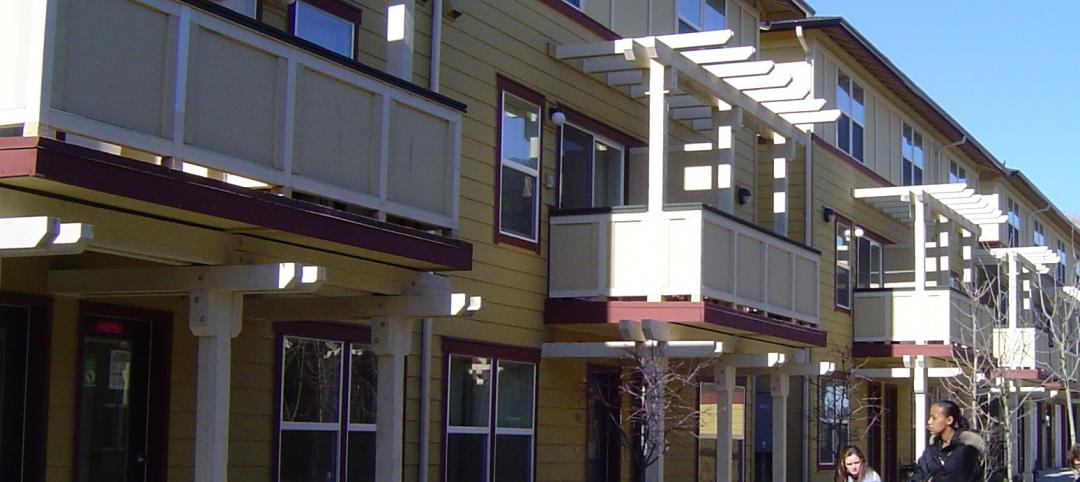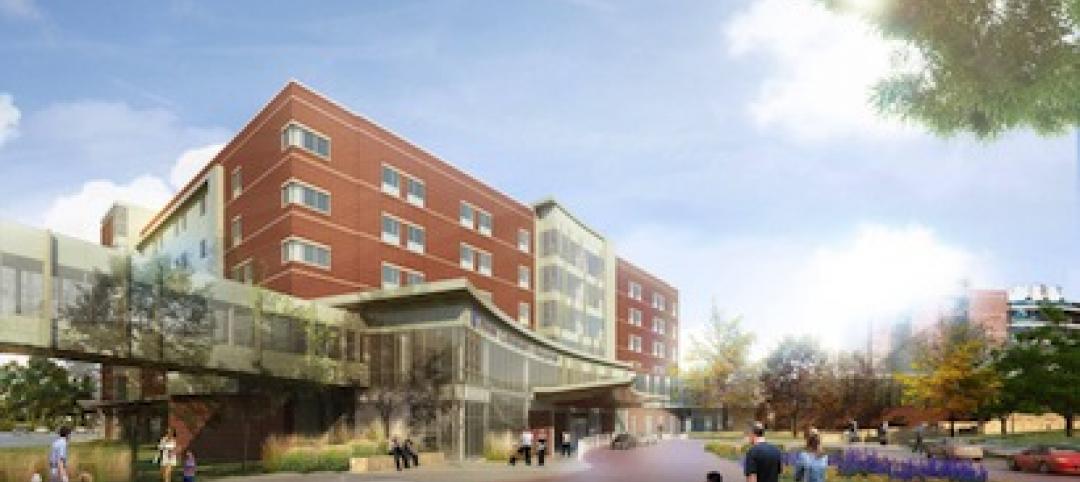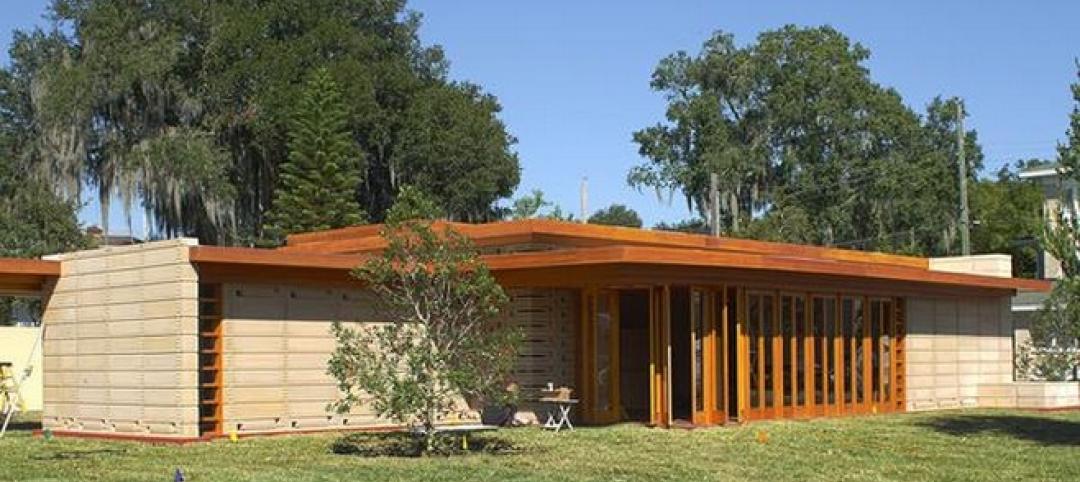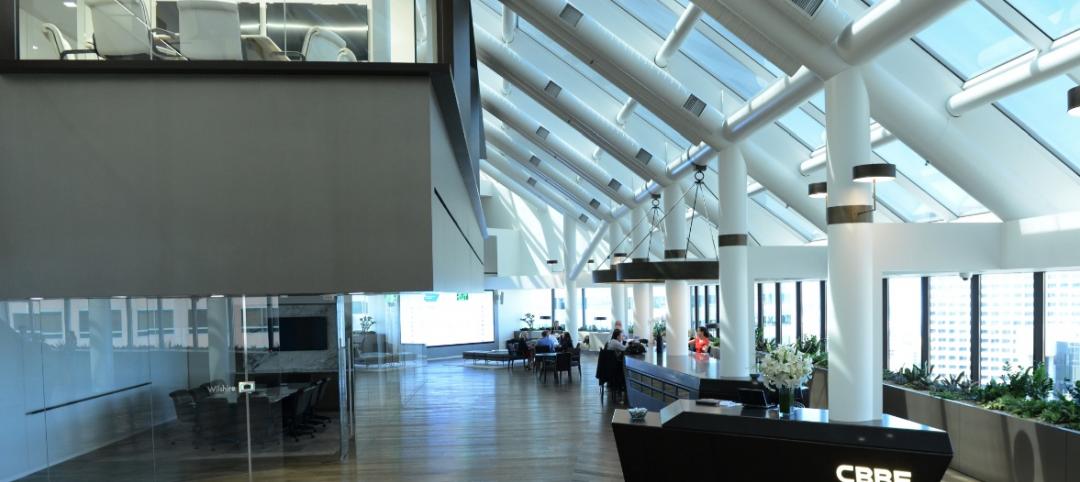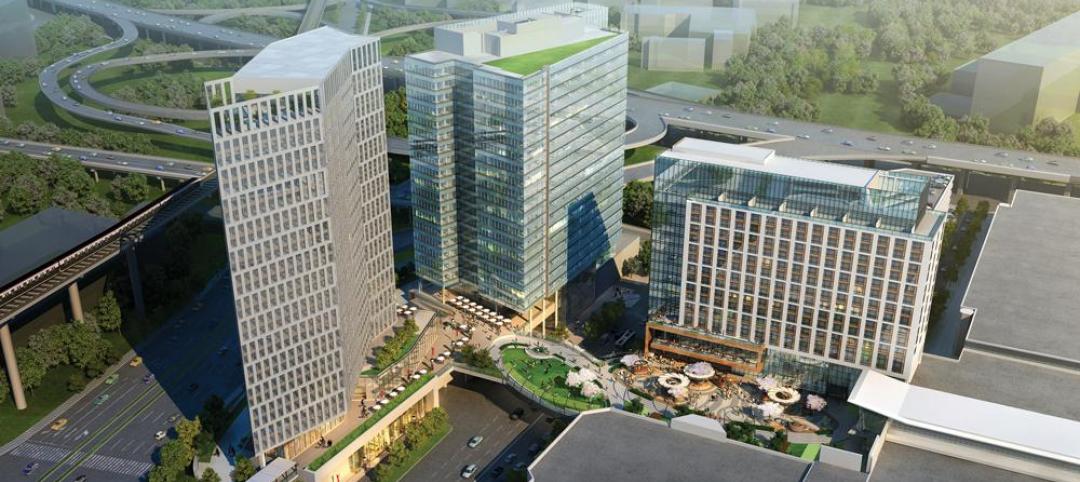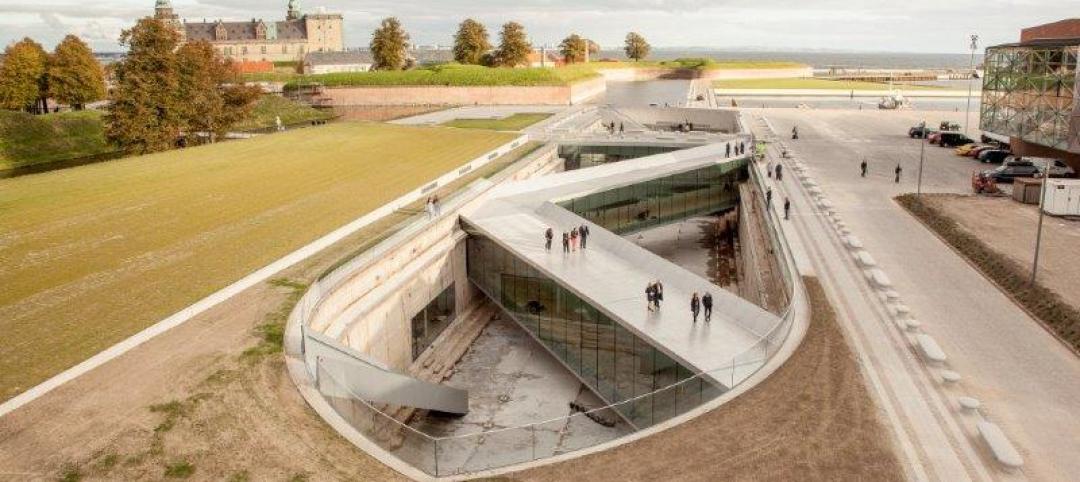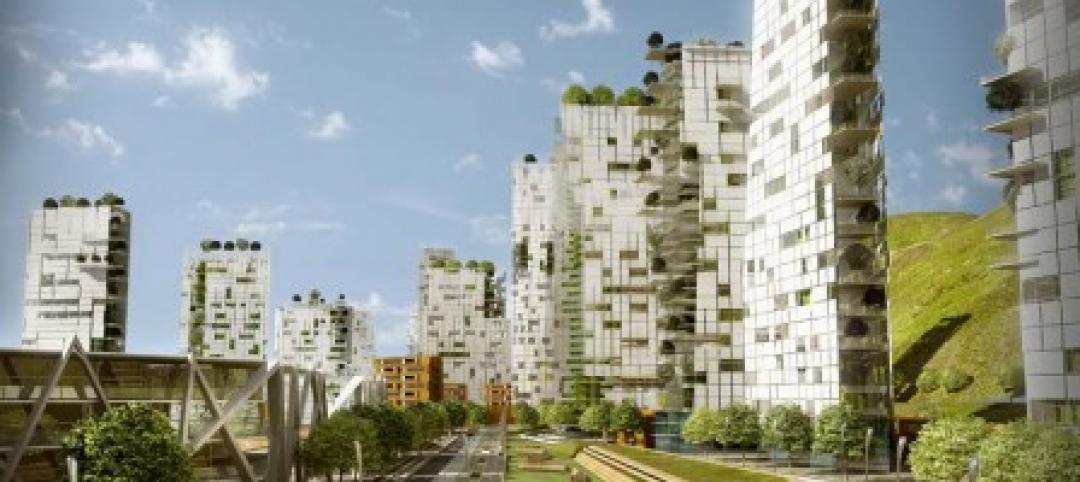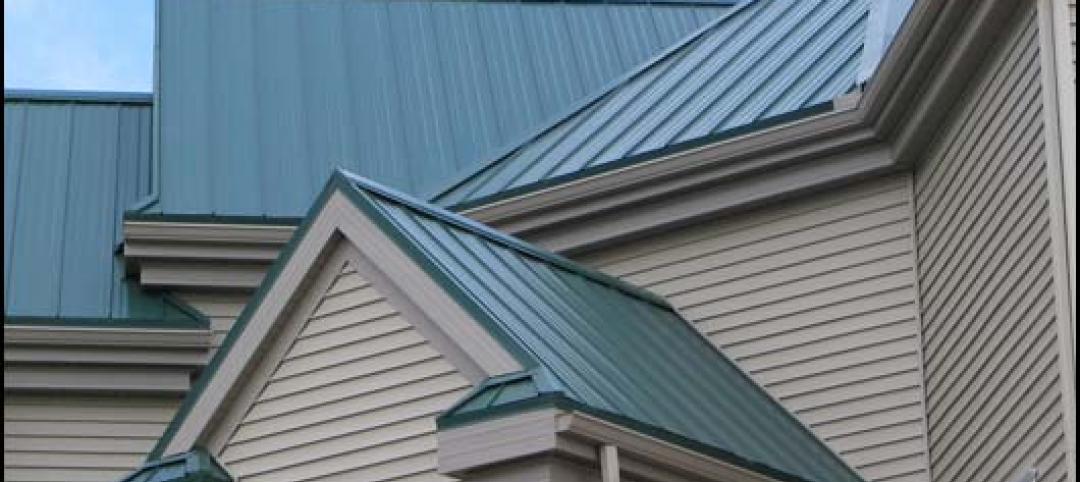Stantec, the global engineering and design firm, bolstered its position geographically and in several business sectors with its acquisition of Denver-based RNL Design, the architectural, interior, and urban design firm.
Terms of the agreement, which is expected to close next month, were not disclosed.
Josh Gould, RNL’s chairman and CEO, tells BD+C that his company decided to put itself up for sale about 18 months ago, and entered into serious discussions with Stantec at the beginning of this year.
“We’ve been autonomous for more than 60 years, so our board didn’t make this decision lightly,” he says. However, the board concluded that RNL couldn’t achieve the kind of market reach it wanted with its existing platform in a consolidating industry “that is changing rapidly,” says Gould.

Josh Gould, RNL Design's chairman and CEO, will become a sector leader in Stantec's Buildings group. Image: Stantec
RNL joins Stantec with 134 employees and offices in Denver, Los Angeles, Phoenix, Washington, D.C., and Abu Dhabi, UAE. But, says Gould, RNL “really didn’t have a lot of coverage in the United States outside of Denver. We have several national and international clients, and they needed broader coverage.”
It gets that with Stantec, whose 22,000 employees are spread over 400-plus locations and six continents. Last year, Stantec, which is based in Edmonton, Alberta, reported $4.3 billion Canadian (US$3.2 billion) in revenue, and C$130.5 million in net income.
Stantec’s business model over the past several decades has been to grow into sectors through acquisition (it’s made over 125 deals). Stantec is active in five sectors: Buildings, from which it generates about 23% of its revenue; Water, which also accounts for 23%, and became a more important part of the company after its March 2016 acquisition of Denver-based MWH Global; Infrastructure (26% of revenue), Energy and Resources (12%), and Environmental Services (16%).
RNL’s management team is staying on with Stantec, and Gould will become its Buildings Sector Leader. Eventually, he will take a leadership role in expanding Stantec’s Civic business.
“RNL has an abundant portfolio in the Civic sector, especially in public transit,” says Leonard Castro, Stantec’s Executive Vice President-Global Buildings Practice. RNL’s notable public transit projects include providing architectural, interior, and sustainable design for the 540,000-square-foot Los Angeles County Metropolitan Transportation Authority (Metro) Division 13 Bus Operations & Maintenance Facility, the first ground-up bus operations and maintenance facility for Metro in 30 years.
Castro says Stantec also saw RNL’s position in Denver and in the Middle East as plusses for the larger’s company’s growth ambitions. “Denver is a strategic market for Stantec, and it’s just a better [location] platform to service our clients” than Edmonton is. He adds that Denver is “exceptional” for its engineering schools.
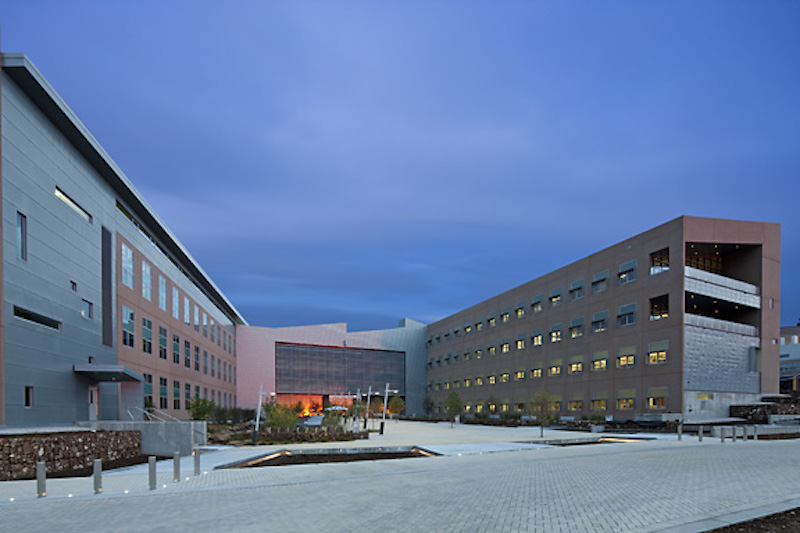
One of RNL's recent projects is the Research Support Faiclity at the National Renewable Energy Lab in Colorado. Image: Courtesy of Stantec
RNL’s strengths in sustainability, resilience, and urban design should solidify Stantec’s position in each, especially given Stantec’s recent “Urban Places” initiative that targets projects related to city living, says Castro. Among RNL’s recent projects is a 190,000-sf net-zero-energy operations building on 36 acres for the Denver Water Board, and the 340,000-sf Research Support Facility at the National Renewable Energy Lab (NREL) in Golden, Colo., for which RNL provided architecture and interior design, site planning, and landscape architecture.
Stantec, says Castro, also believes that having RNL’s architectural design expertise could be a critical advantage in capturing projects for its Water division.
Stantec was MEP engineer on the NREL project, one of a half-dozen that Stantec and RNL had worked on together prior to this acquisition.
New leadership
Coincident to the Stantec-RNL transaction, Stantec announced that its president and CEO of eight years, Bob Gomes, would retire at the end of this year. Gomes, who started working for the company in 1988, oversaw Stantec’s international expansion. Between the first quarter of 2009 and the first quarter of 2017, Stantec also completed nearly 50 acquisitions, and enjoyed a revenue bounce of 229%.
Replacing Gomes, effective January 1, 2018, will be Gord Johnson, a 20-plus-year Stantec vet and, since 2015, Executive Vice President of its Infrastructure business unit.

Gord Johnson (left) will become Stantec's president and CEO on January 1, 2018, replacing Bob Gomes, who has held that position for more than eight years. Image: Stantec
In an interview with the Edmonton Sun following his appointment, Johnson pointed to the company’s diversification strategy as one of the main reasons why it has been able to weather economic shifts in different markets. “We have never been more diversified than we are now,” notes Castro.
Johnson also said Stantec, under his leadership, would look to expand its platform in places where it already has solid footprints, such as the United Kingdom, Australia, and New Zealand.
Related Stories
| Nov 4, 2013
Architecture and engineering industry outlook remains positive on all major indicators
While still below pre-recession levels, all of the key indicators in the latest Quarterly Market Forecast (QMF) report from PSMJ Resources remain in positive territory.
| Nov 1, 2013
CBRE Group enhances healthcare platform with acquisition of KLMK Group
CBRE Group, Inc. (NYSE:CBG) today announced that it has acquired KLMK Group, a leading provider of facility consulting, project advisory and facility activation solutions to the healthcare industry.
| Oct 31, 2013
74 years later, Frank Lloyd Wright structure built at Florida Southern College
The Lakeland, Fla., college adds to its collection of FLW buildings with the completion of the Usonian house, designed by the famed architect in 1939, but never built—until now.
| Oct 31, 2013
CBRE's bold experiment: 200-person office with no assigned desks [slideshow]
In an effort to reduce rent costs, real estate brokerage firm CBRE created its first completely "untethered" office in Los Angeles, where assigned desks and offices are replaced with flexible workspaces.
| Oct 30, 2013
15 stellar historic preservation, adaptive reuse, and renovation projects
The winners of the 2013 Reconstruction Awards showcase the best work of distinguished Building Teams, encompassing historic preservation, adaptive reuse, and renovations and additions.
| Oct 30, 2013
11 hot BIM/VDC topics for 2013
If you like to geek out on building information modeling and virtual design and construction, you should enjoy this overview of the top BIM/VDC topics.
| Oct 29, 2013
Increased backlogs, margins lead to renewed optimism in global construction
After prolonged economic uncertainty, a majority of executives in the global engineering and construction sector have fresh confidence in the growth prospects for the industry, according to KPMG International's 2013 Global Construction Survey. A general increase in backlogs and margins is giving cause for optimism across the industry, with further growth anticipated.
| Oct 29, 2013
BIG opens subterranean Danish National Maritime Museum [slideshow]
BIG (Bjarke Ingels Group) has completed the Danish National Maritime Museum in Helsingør. By marrying the crucial historic elements with an innovative concept of galleries and way-finding, BIG’s renovation scheme reflects Denmark's historical and contemporary role as one of the world's leading maritime nations.
| Oct 28, 2013
Urban growth doesn’t have to destroy nature—it can work with it
Our collective desire to live in cities has never been stronger. According to the World Health Organization, 60% of the world’s population will live in a city by 2030. As urban populations swell, what people demand from their cities is evolving.
| Oct 28, 2013
Metal roofs are topping more urban dwellings
Given their durability and ease of use, metal roofs have been a common feature on rural houses for decades. Now they’re becoming an increasingly popular choice on urban dwellings as well.



